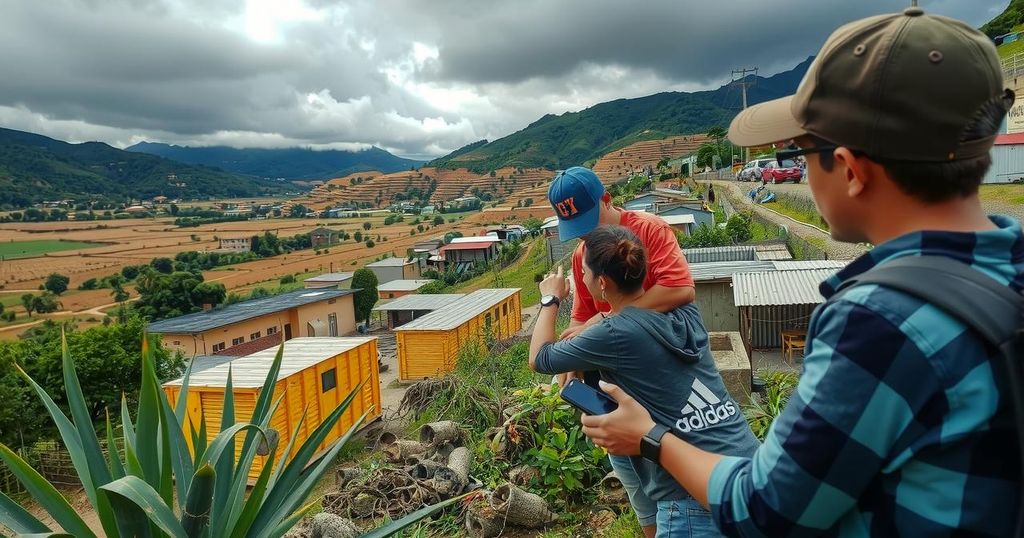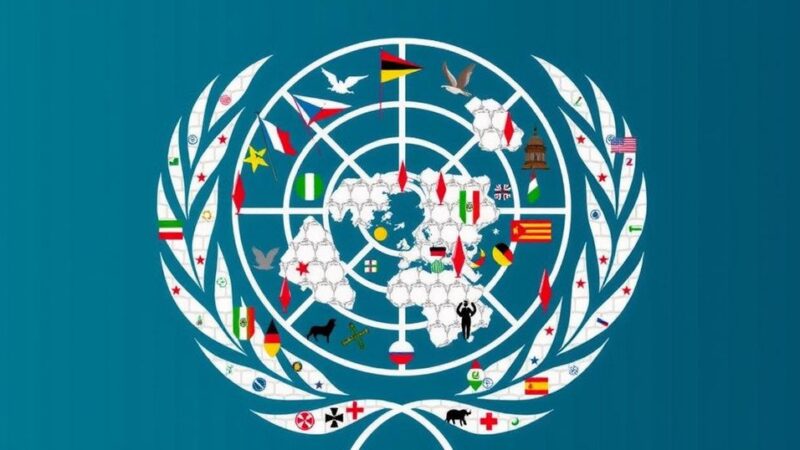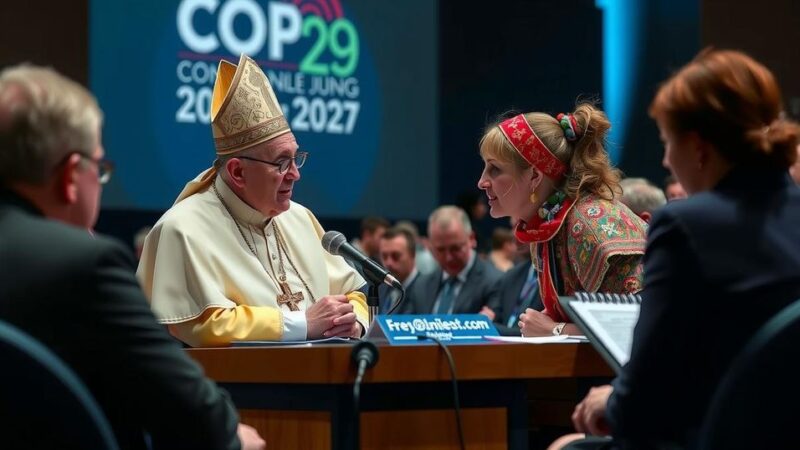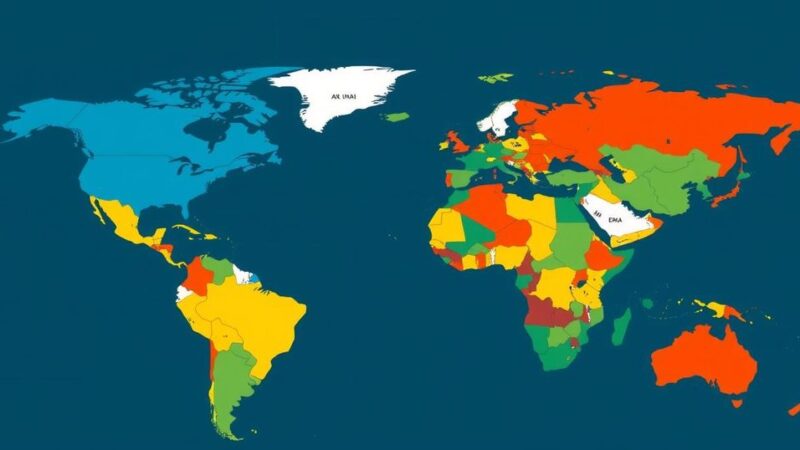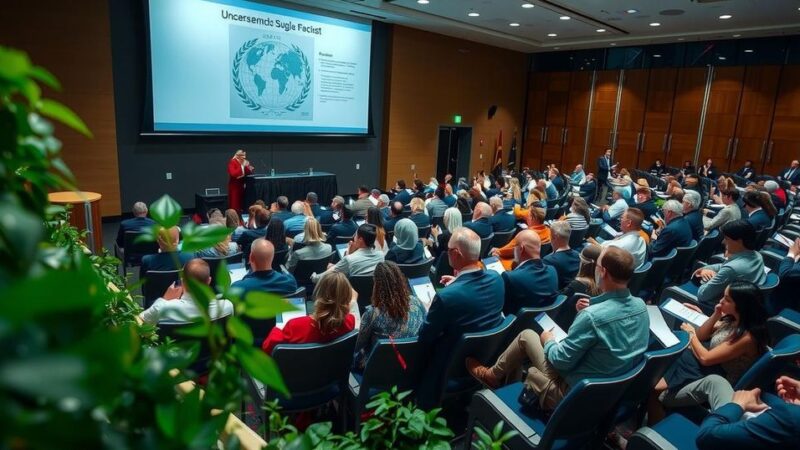Ecuador is experiencing its worst drought in 60 years, resulting in critical wildfires and significant threats to biodiversity. The crisis, compounded by climate change and alleged human actions, has led to economic losses and power rationing, affecting the local population dramatically. Both students and officials express frustration with the government’s handling of the situation, while calls for global accountability emerge in addressing climate-related issues.
Ecuador is currently grappling with its most severe drought in six decades, exacerbated by widespread wildfires that jeopardize the nation’s rich biodiversity. Recognized as one of the globe’s four most megadiverse countries, following Brazil, Mexico, and Colombia, Ecuador is experiencing significant environmental challenges due to its unique microclimates. The country’s varied geographical regions mean that weather patterns differ widely, contributing to complex climatic conditions. For instance, coastal areas experience humid heat and rainfall during the winter, whereas the Andean region, where Quito is situated, has a dry season from August to September. The onset of these climatic adversities has been significantly influenced by climate change, which has been acknowledged in national discourse. In the 2023 presidential campaign, candidates underscored the urgency of addressing drought and fire prevention to secure domestic energy needs. Additionally, officials have indicated that many of the wildfires are likely the result of human actions. Quito’s mayor, Pabel Muñoz, described these fires as “criminal and terrorist,” reflecting a growing concern among the populace about deliberate attempts to worsen the environmental crisis. In light of these developments, students in Ecuador are voicing their frustrations. Alejandra Baca, a third-year international student, stated that it is evident the fires have been intentionally set to worsen conditions for the citizens of Quito. She expressed her helplessness as she observes the situation from abroad. Felipe Rivadeneira, a law student at Universidad Hemisferios, criticized the local government’s poor management and lack of effective fire prevention measures, which have exacerbated the crisis. The ongoing drought, which began earlier this year, has caused significant reductions in rainfall, impacting water reservoirs and agricultural production. As a result, the government has implemented electricity rationing, as approximately 70% of Ecuador’s energy is derived from hydropower. Rivadeneira emphasized the detrimental effects of these electricity shortages on everyday life, particularly for those reliant on power for their work. The Ecuadorian Business Committee reports significant economic losses resulting from the electricity cuts, estimating over $12 million lost each hour. While the government faces criticism for its handling of this hydro-crisis, the underlying issues are compounded by climate change, which is largely beyond Ecuador’s control. Janice Harvey, a professor of environment and society at St. Thomas University, noted that the country faces challenges addressing the interconnectedness of these crises due to insufficient governmental resources. She highlighted the pressing need for systemic solutions and the acknowledgment of climate change as a chronic problem that requires a global response.
Ecuador, a country renowned for its breathtaking landscapes and biodiversity, is currently in the grip of an unprecedented environmental crisis characterized by severe drought and rampant wildfires. The ecological diversity is under threat, with the drought being considered the worst in 60 years, drastically impacting water, agriculture, and energy production. The complexities of Ecuador’s microclimates, coupled with the exacerbating effects of climate change, have led to dire consequences for its citizens and the environment. This situation reflects broader implications related to climate change responsibility and the challenges that developing nations face.
In conclusion, Ecuador’s severe drought and the consequent environmental crisis illustrate the complex interplay between climate change, human influence, and governmental management. The responses from the local population, particularly students, highlight the frustrations and fears stemming from poor crisis management and the deteriorating quality of life due to energy shortages. It is imperative that the systemic issues rooted in climate change are recognized and addressed, calling for accountability from industrialized nations that have historically contributed to the global crisis. By addressing these underlying problems, there is potential for Ecuador to mitigate the impacts of climate change that it largely did not contribute to.
Original Source: theaquinian.net
